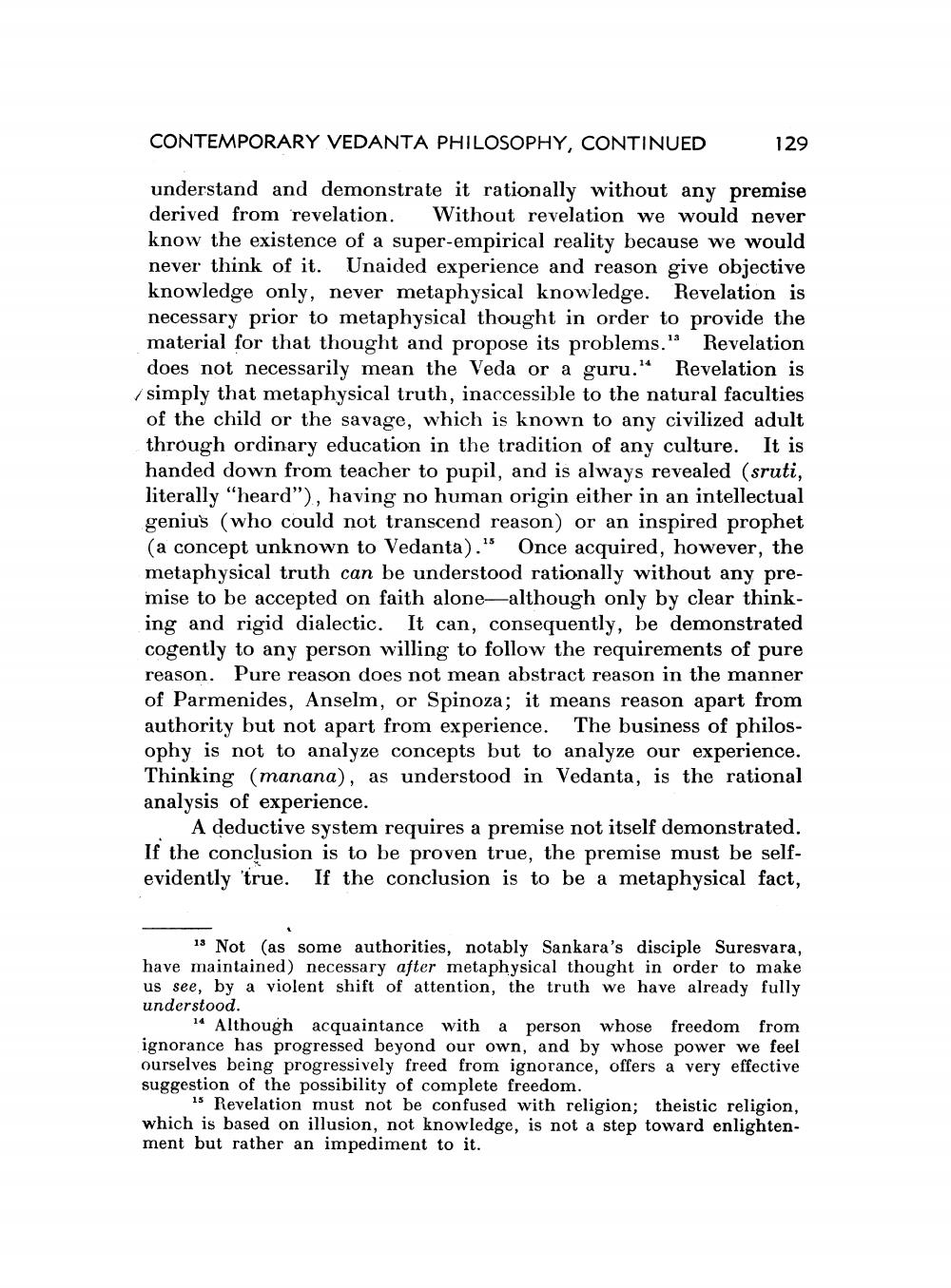Book Title: Contemporary Vedanta Philosophy Continued Author(s): George Burch Publisher: George Burch View full book textPage 8
________________ CONTEMPORARY VEDANTA PHILOSOPHY, CONTINUED 129 understand and demonstrate it rationally without any premise derived from revelation. Without revelation we would never know the existence of a super-empirical reality because we would never think of it. Unaided experience and reason give objective knowledge only, never metaphysical knowledge. Revelation is necessary prior to metaphysical thought in order to provide the material for that thought and propose its problems." Revelation does not necessarily mean the Veda or a guru." Revelation is / simply that metaphysical truth, inaccessible to the natural faculties of the child or the savage, which is known to any civilized adult through ordinary education in the tradition of any culture. It is handed down from teacher to pupil, and is always revealed (sruti, literally "heard"), having no human origin either in an intellectual genius (who could not transcend reason) or an inspired prophet (a concept unknown to Vedanta)." Once acquired, however, the metaphysical truth can be understood rationally without any premise to be accepted on faith alone—although only by clear thinking and rigid dialectic. It can, consequently, be demonstrated cogently to any person willing to follow the requirements of pure reason. Pure reason does not mean abstract reason in the manner of Parmenides, Anselm, or Spinoza; it means reason apart from authority but not apart from experience. The business of philosophy is not to analyze concepts but to analyze our experience. Thinking (manana), as understood in Vedanta, is the rational analysis of experience. A deductive system requires a premise not itself demonstrated. If the conclusion is to be proven true, the premise must be selfevidently 'true. If the conclusion is to be a metaphysical fact, 18 Not as some authorities, notably Sankara's disciple Suresvara, have maintained) necessary after metaphysical thought in order to make us see, by a violent shift of attention, the truth we have already fully understood. Although acquaintance with a person whose freedom from ignorance has progressed beyond our own, and by whose power we feel ourselves being progressively freed from ignorance, offers a very effective suggestion of the possibility of complete freedom. 15 Revelation must not be confused with religion; theistic religion, which is based on illusion, not knowledge, is not a step toward enlightenment but rather an impediment to it.Page Navigation
1 ... 6 7 8 9 10 11 12 13 14 15 16 17 18 19 20 21 22 23 24 25 26 27 28 29 30 31 32 33 34 35 36
